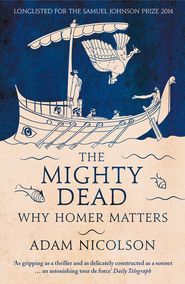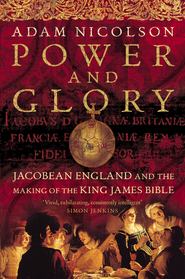По всем вопросам обращайтесь на: info@litportal.ru
(©) 2003-2024.
✖
The Gentry: Stories of the English
Автор
Год написания книги
2019
Настройки чтения
Размер шрифта
Высота строк
Поля
His mother had returned to Plumpton and just before Valentine’s day Robert for once wrote to her from London. Cash was short again:
To my right hartily and mine entyrely beloved wife, Dame Agnes Plompton, bee this delivered.
Best beloved, in my most harty wyse I recommend mee unto you. Soe it is, I mervaile greatly, that yee send mee not the money that yee promised mee to send with John Waukar within 8 dayes after you and I departed, for I am put to a great lacke for it. Therefore, I hartily pray you, as my especiall trust is in you, to send me the said money in all hast possible, and alsoe to send me money, for my cost is very sore and chargeable at this tyme: for I have spent of the money that I brought from you.
Therefore, deare hart, I pray you to remember mee. And as for my matter, there is noe mooveinge of it as yet. And for diverse consideracions and greate hurts might falle to you and mee and our children hereafter, I heartily pray you to remember to hast the money unto mee, as my especiall trust and love is in you,
From London in hast, the Tuesday next afore St. Valentines day, by your lovinge husband, Robert Plompton, kt.
Hurried, repetitive and emotional as this was, less coherent than she was to him, Agnes can have been left in no doubt.
Through the spring of 1504, the sense of an impending disaster grew more insistent, as did Agnes’s realization that Robert was incapable of saving them. In mid-March she sent him the money he needed, which she had somehow scraped together, and asked him that he ‘be not miscontent that I sent it no sooner, for I have made the hast that I could that was possible for me to do’.
She was managing the tricky situation with the tenants, evicting some, squeezing money out of others. In mid-April, her patience was breaking. He hadn’t written; he had let the whole business go on too long. Word had reached her of his hopelessness and their adversaries’ persistence and ingenuity: ‘Sir, I marvell greatly that ye let the matter rest so long, and labors no better for your selfe, and ye wold labor it deligently. But it is sayd that ye be lesse forward, and they underworketh falsly and it is sene and known by them.’
The rent that was due at Whitsun in early May would be a valuable prize for whoever gained the right to the manor by then. There was talk all over the county that Robert was allowing his enemies to win. ‘Sir, I besech you to remember your great cost and charges, and myne, and labor the matter that it myght have anend.’
The Rocliffes had taken to arresting select individuals. They had got the machinery of the law on their side. And what was he doing? ‘Ye dow none to them, but lett them haue there mynd fullfilled in every case.’
The Rocliffes and Sotehills were tightening their grip on the county, by threat and persuasion excluding the Plumptons from the world they had once called their own. Plumpton loyalists were being charged and held. No one would buy the wood the family had felled over the winter, or anything else they were trying to sell. Robert needed to bring the whole question to an end, and soon.
For without ye get some comaundement, I wott not how your house shalbe kept, for I know not wherof to levy one peny worth. No more at this tyme, but the Trenietie keepe you. From Plompton in hast, the xij day of Aprill.
By your wyfe, Dame AGNES PLOMPTON
Two weeks later she was writing again. She was holding the fort, telling him their news. They were all well, the children, their servants, herself. He had been anxious to know if the Rocliffes had received any of the rents (‘the farm’) from the Yorkshire manors, but as far as she knew all they had done was sell some of the timber trees, at way below the market price: ashes and oaks worth 40 pence had been sold for 12 pence, and some holly wood sold at Idle. But that was all, ‘Scrybled in hast, the fryday next after St. Marke day. By your wyffe, Dame AGNES PLOMPTON.’
Then at last a piece of good news. Against all expectations, Henry VII made Robert a ‘Knight of the Body’, an honorary member of the royal bodyguard, and as such screened him and his servants from all arrest. It was the trump card in any court. The Plumptons could keep hold of the manors at Plumpton and Idle, where they had been for 300 years, with impunity. The Rocliffes, at least legally, could do nothing.
A success but no victory. That summer Agnes Plumpton died, perhaps exhausted by the strain of maintaining the dignity of this ragged and tattered family. And despite the legal protection conveyed by Robert’s new status, the facts on the ground, the fear cast into gentry and yeoman alike by the power nexus of Richard Empson and his lawyer friends the Rocliffes and Sotehills, were enough to keep the country almost entirely shut against them.
Symptomatic is an angry letter to Robert Plumpton, from a Yorkshire lawyer, delivered to Plumpton Hall by the lawyer’s man, in November 1506. It was the second time of asking and a promise had been broken:
I pray you that I may have my money now at this tyme, for I must occupy much money within thes iiij dayes, as this bearer can shew you.
If ye will not delyver it at this tyme, I will send no more to you for it, but the berer shall goe to the Shereff and have from him a warrant to leve the sayd money, or els to take your body, the which I wold be as sory for, as any man in Yorkshire, if I myght other wayes doe, as knowes Our Lord, who keepe you in worship. At Staynley, this St. Martyn even. Yours to his litle power,
ROBART CHALONER.
Chaloner was in fact Rocliffe’s man, helping him to increase the pressure on Robert Plumpton. Friends who had stood surety for Plumpton on loans of up to £100 found bailiffs at their doors, seizing their lands and goods, with Plumpton unable to pay or do anything about this spreading disaster. Month after month, Plumpton can have been aware only of the closing of doors. He had married again, Isabel, the daughter of a peer, Lord Neville. She too was soon at her wits’ end. No one would pay him what they owed him. No one would buy what the Plumptons could offer in the way of either underwood or timber trees.
No one would buy any land from the Plumptons as their title to it was so insecure. The Rocliffe-Empson band had shut them out of any timber or wood market. Isabel was reduced to sending Plumpton a few shillings through the post. Her mother, Lady Nevill, sent her £4 13s. 4d. in a letter, saying it was all she could afford and advising her that ‘God is where he was, and his grace can and will pooruey euery thing for the best, & help his servant at their most needes, and so I trust his Hynes, he wil do you.’
At the death of Henry VII in 1509, Robert ceased to be a Knight of the Body, as the office died with the King. Both Plumpton and Isabel his wife, still guilty of occupying Plumpton Hall illegally and owing money at all points, were thrown into the Counter, the debtors’ gaol in London. The Rocliffe and Sotehill cousins took possession of the manors of Idle and Plumpton itself. But the same turn of the wheel brought Plumpton release. Richard Empson and Edmund Dudey, the saw and razor of Henry VII’s oppression, were also arrested on the old king’s death and after conviction on false charges of treason were executed on Tower Hill to general delight, a sop to the masses from the new young King. Empson’s death released the Yorkshire gentry from a reign of terror and the way was opened for yet another attempt at arbitration between the Plumptons on the one side and the Rocliffes and Sotehills on the other.
The final award was made in March 1515. Plumpton was indeed to have Plumpton. The others were to have everything else. If the Rocliffes and Sotehills didn’t let the Plumptons back into Plumpton, they were to give them £40 a year, which was in effect Plumpton’s net worth. Seventy years before, the family had been en route to glory; now they had sunk to this, an annual income below which almost no family could call itself gentry.
Robert was broken. In 1516, he was sixty-three, his ‘grand climateric’, the moment at which, according to classical medical theory, a man’s life turned down towards death. In that year he made a deal with his son William, by which, in a sad and haunted act of resignation, a Lear-like transition from this world to the next, the father surrendered all say over his own life and lands and allowed William to dictate the conditions in which he and Isabel would now live. Will was to ‘have ordering and charge of all the household and goods therto longing’. Robert and Isabel were ‘to take their ease and reast, and to be at board with the said William at the proper costs and charges of the said Will’. Will was to have all the income from the lands and rents and was to pay all the costs, ‘that is to say, meate, drinke, and wages’. He was also to pay for his brothers and sisters and to be in charge of employing the servants, except that ‘the said Sir Robert his fader shal have thre at his owne pleasure, such as he will apointe’. Robert was to have an allowance of £10 a year and Will was to listen to his advice on farms, woods and debts.
It is a broken conclusion. Robert’s legacies at death were a few shillings to a church here and there, a pound or two to his younger sons and daughters ‘which sums William Plompton his son and heir was to pay’.
To Isabel Plumpton, his wife, all the goods in his chamber after his death, and the half of all his other goods. Witnesses to his will were his chaplain, a Plumpton cousin, and his servants Ralph Knowle and Oliver Dickenson, who had been with him at the siege of the hall and in prison in London.
The lands Robert had lost slid on in the hands of the Cliffords, soon to be the high-glamour Earls of Cumberland. None of those old Plumpton lands is more beautiful than Grassington in upper Wharfedale, none more unrecognizable than Idle, now buried in Bradford, none more poignant than Plumpton, where moss grows on the abandoned road and the stone walls on the edge of the wood have been allowed to collapse and crumble.
Is there a moral to this story? Perhaps only that there is no safety. The world of the gentry, even in its medieval beginnings, was not only endlessly negotiable but constantly in need of negotiation. If you happened to get caught in a tough political struggle or a tangle of deceit, it was perfectly likely for the entire family enterprise to be fatally damaged.
The Plumptons remained Roman Catholic at the Reformation, fell increasingly into debt and ended up on the wrong side in the Civil War. John, the last Plumpton of any substance, was wounded at Marston Moor and died after languishing for several days in Knaresborough, where he is buried, owing £6,393. The last of the line was another Robert Plumpton, who died at Cambrai in France unmarried in 1749. He had gone there to confer with his aunt Anne, a Benedictine nun. After his death, the manor of Plumpton was sold to Daniel Lascelles, the son and part-heir of one of the great and most brutal slave-financiers of the eighteenth century. Daniel intended to make it his seat. He pulled down Plumpton Hall and, as Thomas Stapleton, the nineteenth-century editor of the Plumpton letters, described, ‘formed about its site extensive pleasure-grounds; but, after having begun the erection of a new building, he desisted and went to live at Goldsborough Hall, another of his purchases and which, like Plumpton, had once been the residence of a knightly family’.
Everything medieval at Plumpton has gone, erased in the eighteenth century, no more than one or two bits of broken sandstone now surviving among the brambles and the bracken.
PART II
In the Renaissance State
1520–1610
The Tudors were the most successful gentry family in English history. Owen Tudor, an obscure and impoverished North Wales squire, working as a servant in the royal household, managed in about 1428 to catch the eye of Henry V’s widow, Catherine of Valois, a few years after her warrior husband had died. It is not quite certain how he did it but Owen either fell into her lap when dancing drunk or went swimming in front of her and her ladies. It was a Mr Darcy moment. One chronicler, who knew Catherine well, said she was ‘unable fully to curb her carnal passions’
when confronted with the magnificent sight of Tudor in the water – she was about twenty-five, he a year to two older – and English history changed. Their sons became power-players in the Wars of the Roses and from that long violent crisis their grandson Henry Tudor emerged the victor at Bosworth Field in 1485. On 30 October that year he was crowned King of England as Henry VII. In this way, the smallest of vicissitudes can change whole worlds.
The civil wars of the fifteenth century which had brought the Tudors to power had destroyed the world of the great medieval magnates. Under the Tudors, overwhelmingly aware of the vulnerability of a crown weaker than its greatest subjects, the great magnates were excluded from influence. After the 1530s, and Henry VIII’s raid on church property and independent power, the church went too. That should have left the crown itself dominating the field, buttressed by the imposing and often terrifying authority of the Tudor state, but in an era before comprehensive taxation, the crown was chronically underfunded, inherently extravagant and forced to spend capital as income. Between the 1530s and the 1630s, it lost what it should have gained.
Statistics can only be the roughest of informed guesses. Nevertheless, through the sixteenth and seventeenth centuries there is no doubt that the economic and social structures of England underwent the deepest of transformations and the great beneficiaries of this double revolution – the failure of the magnates and then the failure of the crown – were the gentry. Their landholding rose from 20 per cent in the Middle Ages to something like half the country by the middle of the seventeenth century. The result was that where the crown, the church and the great lords had ruled medieval England, the great lords and the gentry came to rule early modern England.
This is the fluid and difficult environment in which the Throckmortons found themselves in the 1530s and where the Thynnes rode to riches and significance. Any number of sixteenth-century ‘new men’ understood the lesson promulgated by the old and cynical Tudor statesman William Paulet, Marquess of Winchester. When asked at the end of his career how he had managed to survive for thirty years at the centre of power, through so many reigns and changes, he said, ‘Ortus sum ex salice, non ex quercu, I was made of the plyable Willow, not of the stubborn Oak.’
The heart of survival: pliancy.
It would be a mistake to make the focus of this history only the pain and struggle of survival in a challenging world. Tudor England was beautiful. Nowhere else in Europe was as green as England and every foreign visitor remarked on it – the thickness of the overhanging trees, the day-long spread of pasture as you rode across country. It was a world of beef and sheep. To keep the fertility up, advisers on Tudor agriculture recommended sowing the meadows with a mixture of clovers, yarrow, tormentil and English plantain. The ‘whole country is well wooded and shady’, a Frenchman, Estienne Perlin, wrote in 1558, ‘for the fields are all enclosed with hedges, oak trees and several other sorts of trees, to such an extent that in travelling you think you are in a continuous wood’.
English pigs amazed strangers with their size and fatness. The best chickens Polydore Vergil ever ate came from Kent. The horses were strong and handsome and were exported abroad. It was a thickened country, dense with locality. This was the wild thyme, oxlip and honeysuckle landscape that would form the remembered and dreamed-of background to a century of violent political and religious change. That is the definition of sixteenth-century England: government bordering on tyranny in a country filled with sweet musk roses and eglantine.
The sixteenth century was a time to be in land. The weather was improving and more children were surviving into adulthood. The number of people in England was rising faster than the amount of food that could be grown for them. With a mismatch of supply and demand, food prices rose, tripling between 1508 and 1551, and rents rose with them. Agricultural land in the sixteenth century was the most reliable source of cash there was. But the ability to deliver the increased yields depended on returning fertility to the ground. A mixed country, in which there was plenty of grazing, much of it already enclosed, was a recipe for financial success. Meadows were money in Tudor England and both these families were blessed with them. Much of the story that follows here – of ideological courage and daring in the face of power; of families squabbling to get their hands on an inheritance – would not have been possible without that pasture-rich background. Tudor gentry floated on grass.
1520s–1580s
Discretion
The Throckmortons
Coughton, Warwickshire
The Throckmortons’ story is the life-track of a family attempting to ride the traumatic cultural uproar of the Reformation. Over four generations spanning the sixteenth century, they played in and out of honesty and duplicity, loyalty and betrayal, integrity and opportunism. They were both a barometer of their time and the clearest possible demonstration that to be a member of the gentry was no feather bed to lie on. Thomas Fuller, the seventeenth-century church historian, would describe yeomen, the farmers who had no claim to gentility or any part in the government of the country, as ‘living in the temperate zone between greatness and want, an estate of people almost peculiar to England’.
That shady, calm country between significance and poverty was a kind of Arcadia that was unavailable to the gentry. Their duty, broadly expressed, was to govern, and in doing so to run the risk of want, or worse.
For at least three hundred years, the Throckmortons had been a Worcestershire family, who in the fifteenth century, partly by marriage, partly by purchase, had acquired lovely Warwickshire estates around Coughton in the damp grassy valley of the river Arrow, as well as others in Buckinghamshire and Gloucestershire. The Throckmortons had been astute managers of land for generations, enclosing pastures and woods, running a Worcestershire salt pit in the fifteenth century and heavily involved in both sheep and cattle, consolidating holdings, looking to maximize revenues from their farms. They had navigated the chaos and challenges of the Wars of the Roses, shifting from one aristocratic patron and protector to the next, deploying the key tactic of gentry survival: the hedging of bets.
Другие электронные книги автора Adam Nicolson
Sea Room




 0
0











